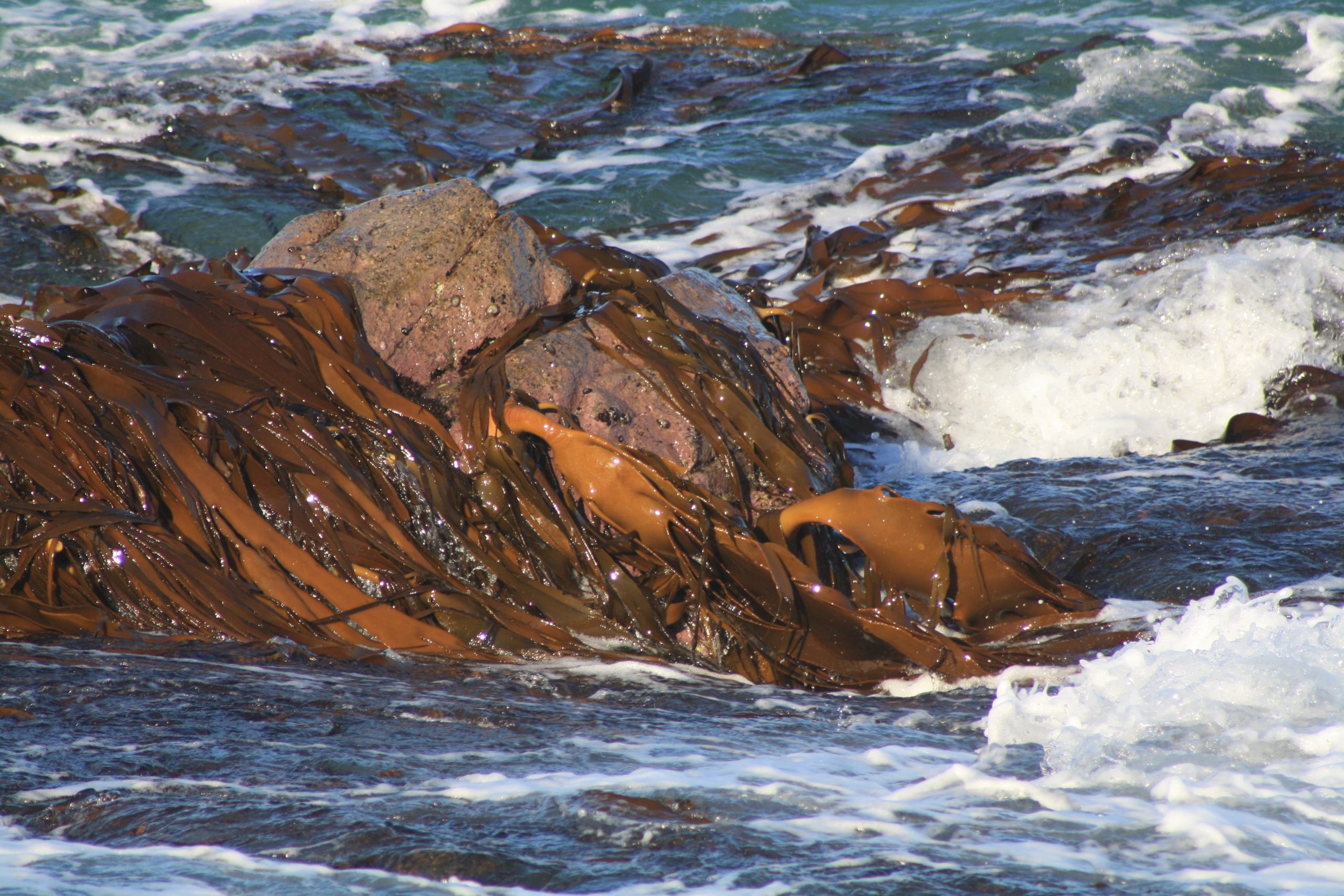The story of Kelp Industries is one of unique success based on the utilisation of a fully renewable resource and the knowledge, creativity and initiative of King Islanders.
King Island is located in Bass Strait midway between Melbourne and the North West coast of mainland Tasmania. The island is surrounded by reefs which support the growth of Durvillaea Potatorum, known locally as Bull Kelp Seaweed

Kelp Industries Pty Ltd was established in 1975 to supply seaweed meal to the biopolymer industry for the extraction of alginate, and has grown into a substantial and successful business contributing significantly to the Island's economy.
The biopolymer industry continues to provide the main outlet, however, animal feed, soil conditioning and other applications are becoming increasingly important.
"Sustainable development" is a perfect description of the way the business has grown and continues to expand. "The Bull Kelp is collected from the shoreline after it has been naturally dislodged from the rocks on which it grows by strong tidal action and washed ashore.
Kelp Supply: Self employed suppliers hand select plants cast on the beaches from predominantly the west coast of the island, deliver them to the factory site using an assortment of utilities and trailers, trucks etc. They then hang their Kelp plants using 'S' shaped hooks onto poles placed on racks set at a conveniently low level.
Weed Storage: The Kelp is mechanically lifted from the lower racks and placed in the higher level racks for storage and atmospheric pre-drying.
Final Drying: After about two weeks the air-dryed Kelp is fed into a wood fired drying system that evaporates sufficient of the residual water to render the Kelp storage-stable, and brittle for milling.
Milling: By means of a purpose-designed system the Kelp is reduced to its granular form.
Weighing: All milled product is loaded and stored in 1 tonne ‘bulka’ bags. Each kelp supplier has their contribution weighed separately and is paid on the weight of dry product.
Product Storage: The product is held in store pending transfer to either the standard steel containers in which it is carried in bulk from Currie to the receiving factories in Norway, or loaded and shipped direct to Australian customers.
Employment: Kelp industries gives direct employment to less than ten people. Many times this number are indirectly involved through collecting kelp, haulage, etc.
Production: Since 1976 the Company has exported in excess of 100,000 tonnes of dried Bull Kelp, this is equivalent to about half a million wet tons.
Exports: The majority of production is exported to Haugesund, Norway for further processing and Alginate extraction.
What Are Alginates: Alginates are natural polysaccharides, primarily extracted from brown seaweed, known for their unique gelling properties and various applications in food, medicine, and other industries. In one form or another, it is very likely that you eat, drink, wear or in some manner enjoy the benefits of our King Island Bull Kelp every day.


